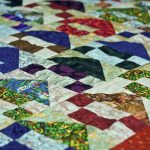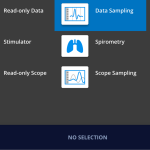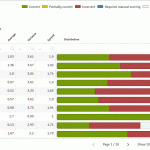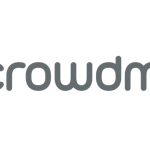In the AdvanceHE Patchwork Assessment Guide the authors start by providing practitioners with a working definition. They use Richard Winter’s 2013 explanation as a starting point but explain that developments mean that the patchworks now may comprise of the textContinue reading… Patchwork assessments
Category: Case study
Reducing the emphasis on grades
Grades feel as much a component of education as learning itself, but are they actually an essential part of that process? In her book ‘Ungrading’ and in this accompanying article Susan D Blum actually argues that “formal education has ledContinue reading… Reducing the emphasis on grades
Letting students decide on their assessments
The current discourse within Higher Education is strongly anchored in and based upon the students as partners in learning. And yet, this rarely includes assessments, which are used to determine students’ specific achievements and to identify whether and in howContinue reading… Letting students decide on their assessments
Using Lt in Pharmacy
ADInstruments LabTutor has been used for a number of years by the UCL Medical school. As Dr Pam Houston, Deputy Academic Lead MBBS Year One, UCL Medical School explains in this post about moving teaching online: LabTutor an interface betweenContinue reading… Using Lt in Pharmacy
Using Wiseflow to support administration in Natural Sciences
AssesmentUCL was mandated for centrally managed exams in 2021-22 but is optional for all other assessments. The Digital Assessment Team have collaborated with a number of academic units to support both widescale adoption of Wiseflow and smaller scale ‘pilots’ thatContinue reading… Using Wiseflow to support administration in Natural Sciences
Negative marking to check understanding of key concepts
AssessmentUCL (Wiseflow) is the institutional digital assessment platform. AssesmentUCL was mandated for centrally managed exams in 2021-22 but is optional for all other assessments. The Digital Assessment Team have collaborated with a number of academic units to support both widescaleContinue reading… Negative marking to check understanding of key concepts
MCQs and Rubrics: two routes to more efficient marking
[How to improve marking and feedback is one of the things that we in the Digital Assessment Advisory are asked about the most. As well as the workload involved, especially for large cohorts, the challenge is to ensure that assessmentContinue reading… MCQs and Rubrics: two routes to more efficient marking
Using Crowdmark for maths assessments
Maths-related disciplines often require students to hand write answers in the form of equations, formula or graphs. If the assessment is online the these answers will then need to be scanned using a tool like Microsoft Lens, and then uploadedContinue reading… Using Crowdmark for maths assessments
Engaging students in interdisciplinary teams and real life case studies
Following on from our recent case study Authentic assessment on the Clinical Exercise and Physical Activity module, the Digital assessment team would like to share another example of authentic assessment at UCL. BENV0056 Health and Wellbeing in Cities: Theory andContinue reading… Engaging students in interdisciplinary teams and real life case studies
Authentic assessment on the Clinical Exercise and Physical Activity module
Back in 2004 Gulikers, Bastiaens, and Kirschner defined authentic assessment as: “An assessment requiring students to use the same competencies, or combinations of knowledge, skills, and attitudes that they need to apply in the criterion situation in professional life.” DespiteContinue reading… Authentic assessment on the Clinical Exercise and Physical Activity module









